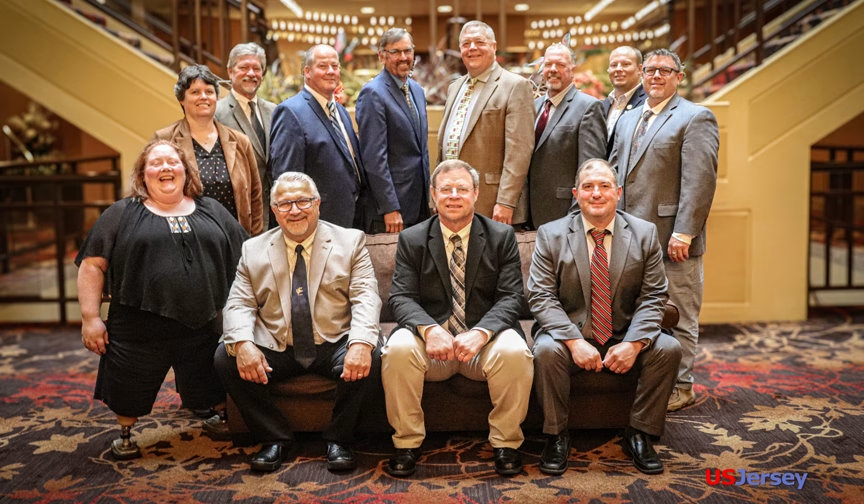Find out why Nestlé’s HY24 results reveal stalled dairy growth and what this means for your business. Are you ready for the industry’s changing landscape?

Do you ever think the dairy sector is on unstable ground? Nestlé’s newest HY24 data, announced in July, indicate that we may be closer to a tipping point than previously assumed. These data, which show essentially static development in the dairy category, are more than statistics. They are a wake-up message to all farm managers and dairy professionals. Nestlé’s success in HY24 is more than a report; it’s a key indicator of market trends, providing challenges and possibilities that might influence our strategy and operations.
Nestlé’s HY24 Financial Report: What Drove the Dairy Sector’s Stagnant Growth?
In Nestlé’s HY24 financial report, the dairy industry saw close-to-flat growth, showing a varied situation within broader company dynamics. Organic growth was 2.1%, with real internal growth (RIG) of 0.1%. Within this setting, brands such as Carnation and Coffee-Mate stand out for maintaining consistent sales but without significant increases. The Ninho Adulto product line shown resilience in Brazil, but it was inadequate to ignite substantial upward momentum in the dairy industry. This decade, they also highlighted a consumer trend toward lower calorie levels and healthier options, requiring continued R&D efforts to innovate and meet market expectations. Laurent Alsteens, president of Nestlé’s dairy sector, emphasized the need for science-based solutions, particularly given the company’s Swiss headquarters.
Unmasking Nestlé’s Dairy Dilemma: Trends, Challenges, and Future Paths
Peeling back the layers of Nestlé’s recent financial performance shows numerous significant drivers influencing the company’s dairy segment. Current market trends indicate a substantial shift toward plant-based and alternative dairy products, reflecting a considerable consumer push toward healthier and more sustainable food options. This shift has undoubtedly reduced demand for conventional dairy products.
Furthermore, changes in consumer behavior have had a substantial impact. The current customer is more health-conscious and interested in items with functional advantages like probiotics, low sugar, and high protein. While Nestlé has made progress in this area, it is a competitive market, and brand loyalty among health-conscious consumers may be fluid.
Economic factors exacerbate the difficulty. Inflationary pressures and financial uncertainty have reduced discretionary expenditure, affecting premium and specialty dairy goods. This economic background makes it difficult for customers to justify increased dairy purchasing, mainly when more cost options are available.
Finally, regulatory developments, notably those aimed at lowering the dairy industry’s carbon impact, have added new complexity. Compliance with these requirements often necessitates considerable expenditures in technology and sustainability programs, which may affect financial performance in the near term, even if they provide long-term benefits.
These issues have combined to produce a harsh climate for Nestlé’s dairy expansion. The firm must continue to innovate and adapt to sustain its market position in the face of these changing forces.
Flat Growth at Nestlé: A Wake-Up Call for the Dairy Industry
Nestlé’s HY24 financial reports showed flat growth, which should serve as a wake-up call. The dairy industry faces obstacles such as market saturation and changing customer tastes, which are reflected in its moderate performance.
First and foremost, understanding the complexities of these financial outcomes is critical. For many companies, the stall in growth might be attributable to a combination of price constraints and relatively flat Real Internal Growth. While Nestlé saw a minor uptick in organic growth in the European zone, the increases were moderate, illustrating a more significant trend of slowing market dynamics.
Potential challenges for dairy professionals include changing milk prices, growing input costs, and greater competition from alternative dairy products. Furthermore, customer preferences for plant-based alternatives and health-conscious options offer further challenges to conventional dairy markets. The regulatory environment and the requirement to comply with rising standards exacerbate these issues, putting pressure on tight margins.
Adapting to Changes: Adaptability and inventiveness are critical for navigating this challenging era. Below are some practical methods to consider:
Invest in Technology: Use technology breakthroughs to increase productivity and lower expenses. Automation, precision farming, and data analytics may provide considerable benefits and insights.
Diversify Product Lines: As shown by Nestlé’s incorporation of novel solutions into products such as Ninho Adulto in Brazil, diversification may open up new market sectors. Consider developing value-added or specialized dairy products to appeal to specific markets.
Consumers are increasingly appreciating sustainability. To fulfill this rising demand, use ecologically friendly techniques like waste minimization and sustainable feed sources.
To reduce interruptions, strengthen supply chain resilience by developing strong connections with suppliers and exploring local sourcing possibilities. Building a robust supply chain is critical for ensuring ongoing output.
Enhance Marketing Efforts: Effectively communicate the quality and advantages of your items. Invest in marketing methods demonstrating your dedication to quality, health, and sustainability.
By proactively addressing these difficulties and capitalizing on existing possibilities, dairy professionals and farm managers may transform a time of sluggish growth into one of strategic realignment and future success.
Innovate or Stagnate: The Future of Dairy in the Face of Nestlé’s Near-Flat Growth
The future of the dairy industry depends on embracing innovation and adapting to changing customer needs. Nestlé’s record, marked by practically static growth in the dairy sector, serves as a wake-up call for industry experts to innovate strategically.
One viable approach is to integrate science-based solutions into product creation. Nestlé’s successful release of Ninho Adulto in Brazil demonstrates how technology developments may address particular consumer health demands while opening up new markets. Dairy experts could consider investing in technologies that improve nutritional profiles or develop functional dairy products for specific market niches.
Furthermore, capitalizing on the trend toward premium and artisanal dairy products might pay off. Brands like La Laitière have proved consumers want high-quality, genuine dairy experiences. Enhancing product offers with excellent quality, sustainable sourcing, and regionally inspired variants might attract a more discriminating market segment.
Another development that should not be overlooked is the emergence of plant-based alternatives. While this poses a competitive challenge, it also allows dairy firms to diversify their portfolios. Combining conventional dairy with novel plant-based ingredients or developing hybrid products may appeal to a wide range of customers looking for balanced nutrition and diversity.
On the operational level, modern data analytics and artificial intelligence may help optimize manufacturing processes, improve supply chain efficiency, and better forecast consumer trends. Dairy professionals may save money by improving processes and decreasing waste while preparing their companies for long-term sustainability.
Given the market’s competitive character, proactive adaptation and ongoing innovation will be critical. Recognizing and using emerging trends may help dairy professionals overcome hurdles and capitalize on development possibilities.
The Bottom Line
In summary, Nestlé’s dismal HY24 dairy performance is a wake-up call for the dairy industry. Market share struggles, sluggish innovation, and a demand for value-based solutions are apparent. While decreased distribution costs and sharper pricing resulted in minor profit increases, this is insufficient. The drop in Latin America and AOA areas reflects underlying market and competitive challenges. Innovation and affordability, like as with DiGiorno Classic Crust, are essential. The industry must either innovate or stagnate. Dairy professionals and farm managers must adapt to changing market conditions, promote sustainability, and encourage innovation. Nestlé’s near-flat growth should serve as a wake-up call for the whole sector. Consider how your operations may include more innovation and strategy to seize new market opportunities. The road ahead is difficult, but the dairy business can prosper with a proactive approach.
Key Takeaways:
- Central and West Africa, South Asia, and Thailand were pivotal in driving growth, indicating potential markets for further expansion.
- Second-quarter improvements were noted across segments, spurred by strategic price adjustments and affordable innovations like DiGiorno Classic Crust.
- Portfolio optimizations and challenging market dynamics contributed to nearly flat growth in Nestlé’s dairy sector.
- Gastrointestinal products and PetCare emerged as strong performers, highlighting the value of science-based solutions and premium brand momentum.
- Purina PetCare bolstered Zone Europe’s growth, complemented by gains in confectionery and coffee sectors.
- Nestlé’s income accelerator program significantly boosted cocoa yields and household incomes, showcasing successful sustainability initiatives.
- Market share dynamics in Zone Europe revealed gains in pet food and ambient culinary, with slower market share declines in the water segment.
Summary:
Nestlé’s HY24 financial report suggests that the dairy sector may be nearing a tipping point, with the industry experiencing close-to-flat growth. Factors influencing the dairy sector include market trends, consumer behavior changes, economic factors, and regulatory developments. Market trends suggest a shift towards plant-based and alternative dairy products, reflecting a push towards healthier and more sustainable food options. Consumer behavior has been significant, with customers becoming more health-conscious and interested in functional advantages like probiotics, low sugar, and high protein. Economic factors have reduced discretionary expenditure, affecting premium and specialty dairy goods. Compliance with these requirements often requires substantial expenditures in technology and sustainability programs, which may affect financial performance in the near term. Nestlé’s dairy expansion faces challenges such as market saturation, changing customer tastes, changing milk prices, growing input costs, and greater competition from alternative dairy products. Adaptability and inventiveness are critical for navigating this challenging era. Practical methods include investing in technology, diversifying product lines, using ecologically friendly techniques, strengthening supply chain resilience, and enhancing marketing efforts.












